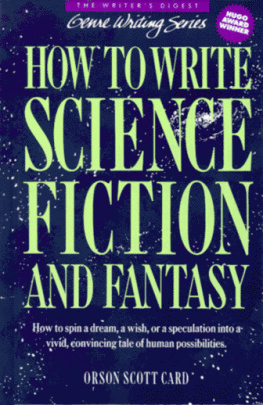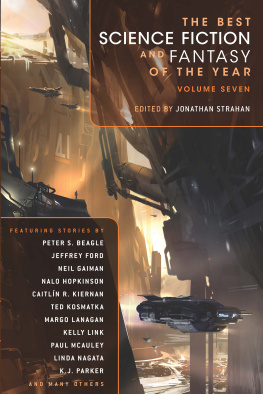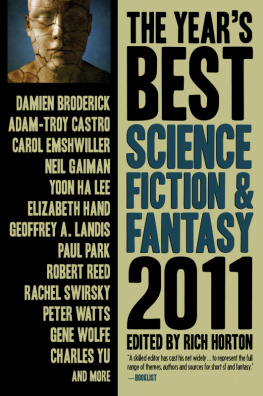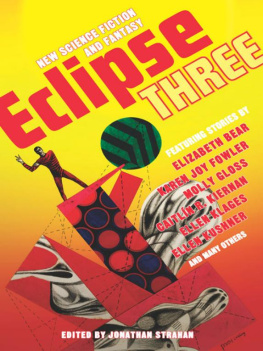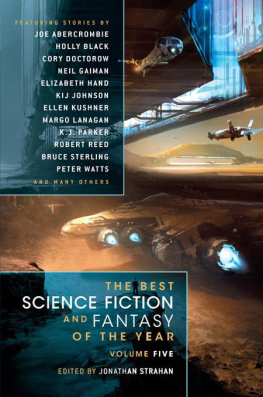Judith Merril - The Year's Best Science Fiction & Fantasy 7
Here you can read online Judith Merril - The Year's Best Science Fiction & Fantasy 7 full text of the book (entire story) in english for free. Download pdf and epub, get meaning, cover and reviews about this ebook. year: 1963, publisher: Dell, genre: Science fiction. Description of the work, (preface) as well as reviews are available. Best literature library LitArk.com created for fans of good reading and offers a wide selection of genres:
Romance novel
Science fiction
Adventure
Detective
Science
History
Home and family
Prose
Art
Politics
Computer
Non-fiction
Religion
Business
Children
Humor
Choose a favorite category and find really read worthwhile books. Enjoy immersion in the world of imagination, feel the emotions of the characters or learn something new for yourself, make an fascinating discovery.

- Book:The Year's Best Science Fiction & Fantasy 7
- Author:
- Publisher:Dell
- Genre:
- Year:1963
- Rating:5 / 5
- Favourites:Add to favourites
- Your mark:
- 100
- 1
- 2
- 3
- 4
- 5
The Year's Best Science Fiction & Fantasy 7: summary, description and annotation
We offer to read an annotation, description, summary or preface (depends on what the author of the book "The Year's Best Science Fiction & Fantasy 7" wrote himself). If you haven't found the necessary information about the book — write in the comments, we will try to find it.
The Year's Best Science Fiction & Fantasy 7 — read online for free the complete book (whole text) full work
Below is the text of the book, divided by pages. System saving the place of the last page read, allows you to conveniently read the book "The Year's Best Science Fiction & Fantasy 7" online for free, without having to search again every time where you left off. Put a bookmark, and you can go to the page where you finished reading at any time.
Font size:
Interval:
Bookmark:
7th Annual Edition: The Year's Best S-F
Edited by Judith Merril
ONEIROMACHIA
by Conrad Aiken
An Introduction to this poem, or to its author, would be certainly tautological, and probably presumptuous. The poem serves rather as an introduction to the book, stating tho case for the literature of the imagination far more effectively (literately, and imaginatively) than I should hope to do myself. Oneiromachia will be included in a new book of Mr. Aikens poetry. The Morning Song of lord Zero, to be published shortly by Oxford University Press.
* * * *
We are the necromancers who once more
magically make visible the night
recapture that obscure obscene delight
fathom its undertow and in one net
fish up foul fables we must not forget
have them alive and slippery in our hands:
what are we but divided selves that move
to find in all that glittering thrash our love?
Well summon in one dream all motives forth
and you shall be the south and I the north
and we will speak that language of the brain
thats half of Portugal or all of Spain
or of those yet unsounded seas
that westward spawn beneath the menstrual moon:
what are we but divided souls that live
or strive to in the sundered self of love?
Splinter the light and it will dream a rainbow
loosen the rainbow it will stream in light
divide the brightness and youll build a wall.
But well a twilight be, a go-between
of midnight and of daybreak, and beget
marvels and monsters we must not forget:
these are the language that love dared not speak
without which we can neither make nor break.
A PASSAGE FROM THE STARS
by Kaatje Hurlbut
Loosen the rainbow, Mr. Aiken says or splinter the light. They are the same thing seen from different sides of any prism. It is this function precisely, and uniquely, that defines the scope of what I mean by the derived initials of my title. S-F means all the ways of filtering feelings and Ideas through imagination so as to project them in another form no less true, but a great deal less expected.
Kaatje Hurlbut has been writing for eighteen years, and is a fairly regular reader of science fiction, but this is her first s-f story. In telling me how it came about, she described graphically the working of this prism effect:
I went out before dawn one cold morning in October 57 to see the first Sputnik. It must have uprooted me, because I began to see how beautiful the earth is in approach and these two things impressed me tremendously: first, how precious it is a flourishing globe of life in the lifeless dark of space; and second, that it is ours, it is home.
This story was published, she adds, on the day Shepard made his space flight. I was delighted. I fell launched too. Actually, she was well launched some time before that. Since her first appearance in Mademoiselle, six years ago. Miss Hurlbuts stories have been published in a cross-section of leading national magazines, both slick and literary, and two before this have been reprinted in best anthologies: a collection from Mademoiselle, and The Best American Short Stories, 1961.
* * * *The people of Pomeroys Cove gave Mr. Paradee the sky. They gave it all to him, from dawn to dawn with thunderheads and flights of geese and the red moon rising. At first it was a joke, one of those non-sympathetic jokes reserved for the newcomer by members of a small village, a defensive measure designed to hold him in place while being inspected for acceptability. For, one fall when the cove had just settled down to a long snug winter summer visitors gone for the year Mr. Paradee turned up, purchased land from Miss Pomeroy and built his house on a point beside the marsh. His manner was one of extreme reserve couched in the punctilious deference of his old-fashioned way with one astonishing exception: he would rap on doors at night and call them out to see the northern lights; he would stop them in the lane in the morning to ask if they had seen the crimson of the dawn; in the evening he would call to them and point over the marsh at a sundogs mocking glow. They cocked their heads and wondered about him.
The truth was, Mr. Paradee had lived his entire life in the deep streets of the city. When he came to Pomeroys Cove to live, he couldnt get over how big the sky was, how changing it was and how magnificent. It was as simple as that.
A retired bookkeeper, he was a small, quiet man, stooped a little by nearly fifty years of bending over the ledgers he kept for a button factory; when he spoke, it was with the earnestness of one unaccustomed to casual small talk; a chronic squint rendered his expression gently quizzical. Until he came to Pomeroys Cove he had no family the years of his life had been much like the factorys books, meticulously correct and hopelessly predictable.
When Mr. Paradee retired he invested his lifes savings to bring about two supreme ambitions. One was to have a home his own house with a yard and a white picket fence. The other was to have a great many friends. But his shyness made him compromise in this by setting himself up as a ham radio operator. Through his short-wave he could roam the earth that throbbed with sound, and discover friendly voices which spoke across the night into the morning and pass along a scrap of gossip or a good story from Reykjavik to Singapore, from Johannesburg to Sydney.
But he found, to his happiness, that he hadnt time for his short-wave adventures during the days though often in the night he switched it on for Pomeroys Cove soon gave him the sky in earnest. Not only the sky but also tulip bulbs to start a garden and birthday cakes and advice about his gutters. Their dogs walked beside him down the lane, their children sat on his steps in the sun and held serious talks with him, and on summer evenings he sat on their porches with them, rocking, swatting mosquitoes and murmuring comfortably.
The dim long tunnel of his loneliness seemed far behind him now. For as yet no echo had come from the tunnel to haunt him, to chill his heart and make him tremble, as if with cold.
Besides Mr. Paradee there were only six other families on the cove, if Miss Pomeroy could be counted as a family. An elderly maiden who lived alone, she had inherited the cove and its land from her family, which had settled there in the 1600s. The Pomeroy estate had been intact for almost 300 years.
To the indignation of her contemporaries in the neighborhood, Miss Pomeroy had shattered the precedent of generations of family by selling, in recent years, parcels of land here and there the land on which Mr. Paradee and the others had built their homes. For company, she snapped with a none-of-your-business inflection to those who demanded to know why, and who knew it was not for money.
She herself lived in a Victorian house on a knoll overlooking the point. But the original Pomeroy house, by now called the Settlers Cottage, was built in 1690 and stood back from the water at the head of the cove. It was out of sight, hidden among the trees.
A massive stone structure, deep-roofed with great chimneys at either end, it had been neglected for almost 100 years. But recently Miss Pomeroy had given in to years of pestering by the local Historical Society and had assumed the expense of having the Settlers Cottage restored to the last candlestick and kettle. During the summers a caretaker, whom she engaged, received the trickle of visitors who roamed the old rooms, admiring trestle table, spinning wheel and little, bubbly windowpanes.
Font size:
Interval:
Bookmark:
Similar books «The Year's Best Science Fiction & Fantasy 7»
Look at similar books to The Year's Best Science Fiction & Fantasy 7. We have selected literature similar in name and meaning in the hope of providing readers with more options to find new, interesting, not yet read works.
Discussion, reviews of the book The Year's Best Science Fiction & Fantasy 7 and just readers' own opinions. Leave your comments, write what you think about the work, its meaning or the main characters. Specify what exactly you liked and what you didn't like, and why you think so.

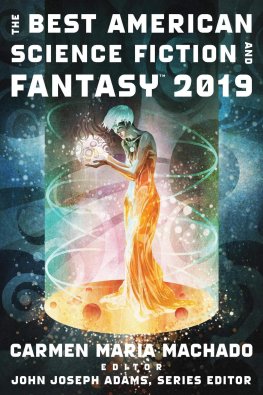
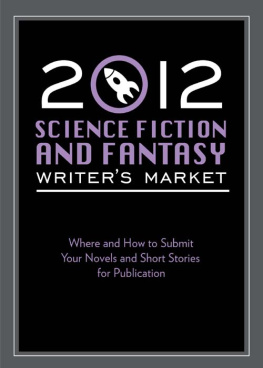
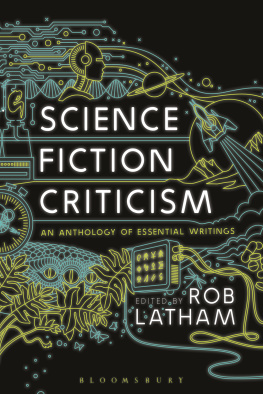

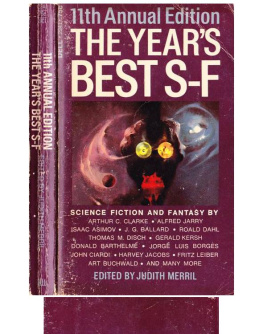
![Merril - The Years Greatest Science Fiction & Fantasy 1: [Anthology]](/uploads/posts/book/220111/thumbs/merril-the-year-s-greatest-science-fiction.jpg)
